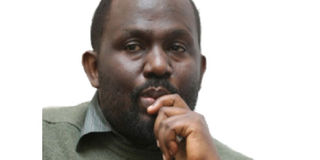Africa is changing. How far is Uganda behind?

From Milton Obote, Field Marshall Idi Amin, and in recent decades President Yoweri Museveni, politicians in Uganda like to see themselves as being at the centre of the big political movements in Africa.
And play a part they did. Obote was one of the key men in the formation of the Organisation of the African Unity (OAU) in 1963; he helped nurse the East African Community I; he dipped his toes in Congo’s treacherous waters; backed the Anyanya movements in now South Sudan; and with Tanzania’s Julius Nyerere, and the white handkerchief-carrying, golf and accordion-playing, and vegan Kenneth Kaunda, formed the “Mulungusi Club”, in many ways the forerunner of the organisation of the southern African Frontline states.
Amin was quite gung-ho about southern African liberation, and was stridently pro-Palestinian.
Museveni outdid them all in his geopolitical activism. He was key in giving the East African Community CPR (cardiopulmonary resuscitation); he threw heavy military behind the Sudan People’s Liberation Army; was in concert in the war against Mobutu Sese Seko in DR Congo; got the UPDF to roam the bushes of the Central African Republic (CAR) hunting for the elusive Joseph Kony; and in a bold gamble, became the first to dispatch the boys to Somalia to battle al-Shabaab, and ultimately setting the terms for Amisom intervention.
But all these three Big Men, were eventually overtaken by the changes in regional and international forces, and blindsided by shifts in domestic political dynamics. It would take half this newspaper to explore all these, so for now, let’s look to developments that are alive today.
Two events in Africa will illustrate the state of affairs, and if you blinked, you probably missed them. As 2017 started, in The Gambia, the autocrat Jahya Jammeh, who had lost and conceded the election to Adama Barrow, was overcome by his baser nature. He went back on his concession, and rejected the result.
West Africa doesn’t take too kindly to spitting in the face of democracy like that; you are better off pulling those moves in Central and East Africa. Outraged, the regional bloc Ecowas put together a military intervention, went to Banjul, and smoked Jammeh out.
For the longest time, Nigeria had been the regional superpower leading Ecowas military intervention on that side of Africa. This time, it was Senegal. Leave West Africa, and go down to southern Africa.
In Botswana, President Ian Khama’s term is ending in 2019. However, with nearly two years to go, the ruling Botswana Democratic (BDP) party in July elected Vice-President Mokgweetsi Masisi as its leader.
Khama himself has been busy telling anyone who can listen that he can’t wait to leave, and dancing with market women, saying his farewells. Remember, when everyone in southern Africa was mum about criticising Robert Mugabe’s madness in Zimbabwe, only Khama had the guts to do so.
A few days ago, the NRM MPs voted to lift the 75-year age limit, added two years to both theirs and Museveni’s term in office, thus enabling him to stand in 2023 for the 7th term, when he will be 79. Khama will step down when he is 66. President Macky Sall, who spearheaded the action against Jammeh, is 56.
Age doesn’t necessarily matter much in these things, and this is not about that. It is about what translates into specific policy approaches and options in politics - a generational change. Thus recently, Senegal became the second country in the world to launch a digital national currency.
The eCFA, runs on the blockchain like Bitcoin. Part of that has to do with a youngish president’s comfort with technology.
Of interest in Botswana’s case, is what it did in mid-December after US President Donald Trump threatened to punish countries that voted against his controversial move to recognise Jerusalem as the capital of Israel.
Botswana not only voted for a UN resolution criticising the move, but also issued a widely reported statement criticising Trump and his threats. Senegal too, voted against it.
Uganda, the third highest recipient of US aid in sub-Saharan Africa, by contrast, abstained.
In Obote’s and Amin’s time, and the early years of NRM, Kampala would have voted against the move.
So what have Botswana and Senegal got that enables them to act with this level of confidence? They are both democracies, and their economies are in good shape.
It has given them the moral authority to intervene as in The Gambia, lecture neighbours, or tell Trump off because they don’t need him to pay for their meal cards.
We could be seeing a new order in Africa, in which geopolitical clout is being realised as democratic dividend. Over the next two years, we are likely to have a complete shift when South Africa, Nigeria, Senegal, and Botswana all hold elections.
By the way, Mokgweetsi Masisi will be just 46 then.
Mr Onyango-Obbo is the publisher of Africa data visualiser Africapedia.com and explainer site Roguechiefs.com. Twitter@cobbo3




